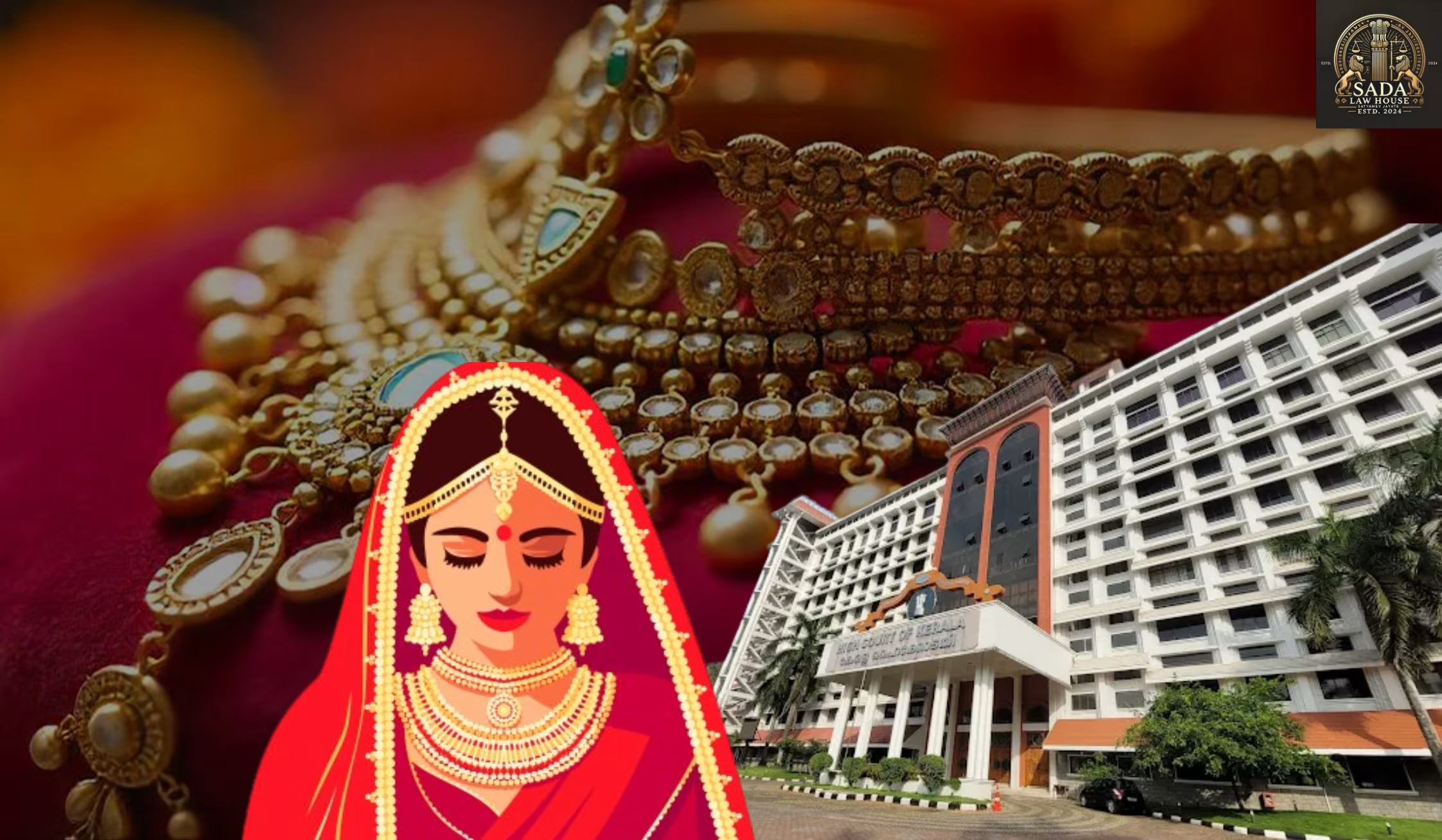Kerala High Court Rules Married Women Can Reclaim Streedhan Gold Without Strict Proof
- Prabhat Kumar Biltoria
- 10 JULY 2025

In a progressive ruling, the Kerala High Court states that married women can reclaim their streedhan gold from in-laws without needing strict proof or documentation. The decision affirms women’s right to personal property and addresses societal realities in Indian marriages.
Introduction: Major Relief for Women Seeking Streedhan Recovery
In a significant move toward gender justice, the Kerala High Court ruled that married women can reclaim streedhan—gold and valuables given at marriage—without the burden of providing strict photographic or documentary proof. The ruling acknowledges the social reality of informal gift-giving practices in Indian families.
A Division Bench comprising Justice Devan Ramachandran and Justice M.B. Snehalatha delivered the verdict, setting a powerful precedent in matrimonial property disputes.
The Case: A Woman’s Appeal for Her Gold
The case stemmed from a petition filed by a woman before a Family Court, claiming that her in-laws retained 65.5 sovereigns of gold given to her at the time of marriage. The Family Court denied her claim, citing lack of sufficient evidence proving that the gold was in the possession of her husband’s family.
She then appealed to the High Court, challenging the lower court’s ruling.
Informal Transfers Are Common: Court Recognizes Societal Realities
The High Court observed that in Indian marriages, it is common for jewellery and valuables to be handed over without written records or receipts. The judges emphasized that:
“The absence of documentary proof cannot be the sole basis for dismissing genuine claims, especially when supported by credible oral testimony and circumstantial evidence.”
The Bench ruled that civil disputes are decided based on the preponderance of probability, not strict or conclusive proof.
Testimonies and Legal Reasoning
The woman and her family members presented consistent oral testimony, while the husband failed to deny the allegations or provide proof that the gold had been returned. The Court found the woman’s claims credible and ruled in her favor.
She was granted restoration of 59.5 sovereigns of gold (or its market value). However, the Court denied her claim for household goods and items allegedly gifted by cousins, due to lack of specific evidence.
Key Takeaways from the Verdict
Streedhan remains the exclusive property of the woman, even after marriage.
Lack of written proof should not invalidate genuine claims.
Courts must consider oral evidence and practical realities over formalities.
The judgment strengthens women’s rights in matrimonial litigation.
Societal Impact: Empowering Women Through Law
This ruling has far-reaching implications. It reinforces that personal property rights of women should not be hindered by procedural loopholes or unrealistic evidentiary demands.
It also serves as a beacon for women facing similar issues, encouraging them to seek legal recourse without fear of being dismissed due to lack of formal proof.
Conclusion: A Step Forward in Matrimonial Jurisprudence
By upholding the woman’s right to reclaim her streedhan gold, the Kerala High Court has reaffirmed its commitment to gender equality, justice, and social awareness. The judgment is expected to influence future rulings and shape a more empathetic legal approach to property disputes in marriages.






